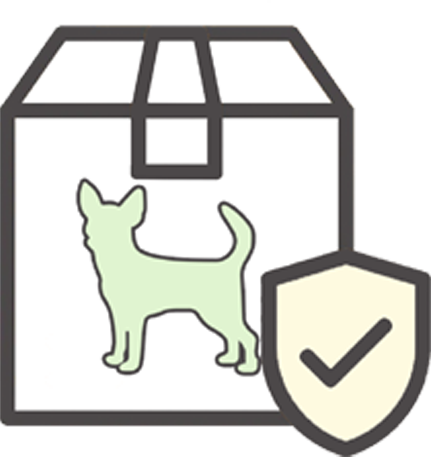The Sneaky Culprits: Understanding the Threat of Indoor Pests in Winter
Updated On: Monday, March 24, 2025 12:01:27 PM America/Los_Angeles
When we think of pests bothering our dogs, images of fleas and ticks during the warm months often come to mind. But did you know that these sneaky culprits can be a threat even in the dead of winter? In this blog post, we'll explore the world of indoor pests during the winter and the potential harm they can cause to your furry friend. We'll also provide valuable advice on how to prevent infestations and ensure your dog's well-being during the colder months.

The Winter Haven for Indoor Pests
Winter might seem like an odd time for pests to thrive, but many indoor pests find the cozy warmth of our homes irresistible, making them a year-round concern. Here are some of the common indoor pests that can affect your dog during winter:
Fleas: Fleas are notorious for their agility, and they can easily hitch a ride on your pet, your shoes, or even clothing. Once inside your home, they multiply quickly, leading to infestations that can be challenging to eliminate.
Ticks: These blood-sucking parasites can be active even in the winter, especially when the climate inside your home is warm. Ticks can transmit diseases, making them a health hazard to both you and your dog.
Bed Bugs: While not as common as fleas or ticks, bed bugs can still be a concern, especially if you've recently traveled. These tiny insects feed on blood, and they often hide in bedding, furniture, and crevices in your home.
The Dangers of Indoor Pests for Your Dog
Indoor pests pose several risks to your dog:
Irritation and Allergies: Flea and tick bites can cause itching, redness, and discomfort. In some cases, dogs may develop allergies to these pests, leading to severe skin issues.
Disease Transmission: Ticks, in particular, are known for transmitting diseases like Lyme disease and Rocky Mountain spotted fever. These can lead to serious health problems for your pet.
Stress and Anxiety: Pests can cause stress and anxiety for your dog. Constant itching, scratching, and discomfort can take a toll on their mental and emotional well-being.
Preventing Indoor Pest Infestations
Now that you understand the potential threats, here are some practical tips to prevent indoor pest infestations during the winter:
Regular Grooming: Brush your dog regularly and check for fleas and ticks. This can help you catch infestations early.
Frequent Vacuuming: Vacuum your home frequently, especially in areas where your dog spends a lot of time. Empty the vacuum bag outside to prevent pests from returning inside.
Wash Bedding: Regularly wash your dog's bedding and your own in hot water. This helps eliminate any hidden pests.
Pet-Friendly Pest Control: If you have a severe pest problem, consider pet-safe pest control measures. Consult with your vet for the best options. A great option for bug spray is Cedarcide Original. It's made from cedarwood oil and is known for repelling pests like fleas, ticks, and mosquitoes. Unlike many commercial sprays, it's free from harmful chemicals, making it safe for your pets. It's effective against various pests and can be applied to your dog's fur, bedding, and surroundings. Plus, it's eco-friendly, ensuring it doesn't harm the environment.
Year-Round Prevention: Continue using flea and tick preventatives throughout the year, even during the winter months.
An Indoor Potty Solution: During the cold days or winter season, most pups do not want to potty outside in the cold, that’s where an indoor potty solution like DoggieLawn comes in. It’s a real grass, odor-neutralizing potty pad that maintains a fresh indoor environment, especially when you can't open windows. Plus, it's low-maintenance; just replace it when needed. DoggieLawn is designed for dogs of all sizes, ensuring it's ideal for small pups to larger breeds. Including DoggieLawn in your winter pet care routine provides a reliable and odor-free bathroom solution for your dog when outdoor options are less appealing.
Conclusion
Remember that maintaining a clean and pest-free environment is not only essential for your dog's health but also for the well-being of your entire family. By being aware of the potential threat of indoor pests in winter and taking proactive measures, you can ensure that your furry friend enjoys a safe and comfortable winter season.

